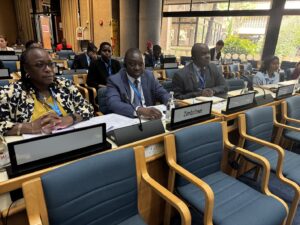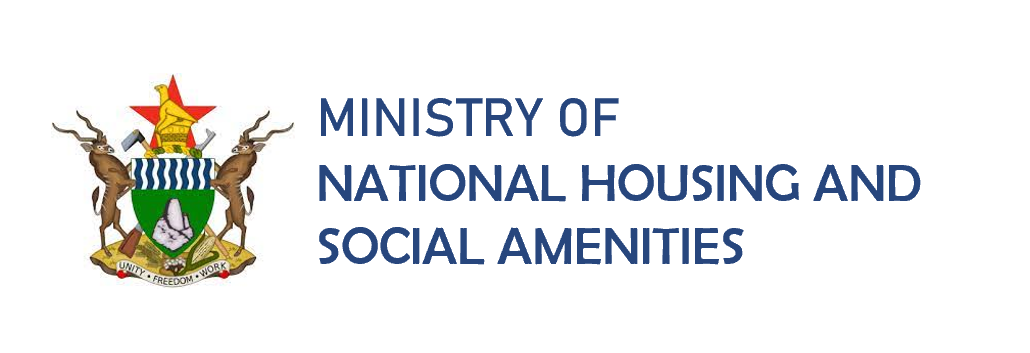
Left to Right: Her Excellency Winpeg Moyo, Zimbabwe Ambassador to Kenya, Uganda, and Somalia, and Permanent Representative to UNEP and UN-Habitat, Hon Zhemu, Soda Minister of National Housing and Social Amenities AND Benjamin Gwenzi Director Urban Housing following proceedings at the first Executive Board session of the United Nations Human Settlements Programme (UN-Habitat) for 2025, held in Nairobi, Kenya.
Zimbabwe has called for sustainable urban settlements during the first Executive Board session of the United Nations Human Settlements Programme (UN-Habitat) for 2025, held in Nairobi, Kenya, this week. The session brought together representatives from various member states, with Zimbabwe’s delegation led by the Minister of National Housing and Social Amenities, Hon. Zhemu Soda. Also attending was Her Excellency Winpeg Moyo, Zimbabwe Ambassador to Kenya, Uganda, and Somalia, and Permanent Representative to UNEP and UN-Habitat.
The session kicked off on Tuesday with opening remarks by Dr. Shuaibu Belgore, Permanent Secretary of the Ministry of Housing and Urban Development of Nigeria, who welcomed all delegates to the first Executive Board session of the year.
In her address, UN-Habitat’s Executive Director, Ms. Anacláudia Rossbach, expressed gratitude to the Government of Kenya for its continued support of the organization’s mission. She emphasized that 2025 would be a pivotal year, with key decisions shaping the strategic direction of UN-Habitat. Rossbach also highlighted the challenges posed by financial constraints, stressing the need for increased financial commitments to support programs focused on housing, basic services, climate resilience, and urban recovery.
The Executive Board plays a crucial role in overseeing UN-Habitat’s operations and ensuring transparency and accountability. Discussions at the session centered on financial, budgetary, and administrative issues, as well as updates on the draft work program and budget for 2026. Board members will also review the draft strategic plan for the 2026–2029 period.
Minister Zhemu Soda, speaking on behalf of Zimbabwe, acknowledged the challenges faced by Africa, noting the continent’s rapid urbanization and the growing number of people living in informal settlements. He reaffirmed Zimbabwe’s support for the UN-Habitat resolutions proposed by the Africa Group, highlighting the importance of addressing funding shortfalls. The Minister underscored that Zimbabwe sees the Transformation of Informal Settlements and Slums resolution as a key solution to the challenges of inadequate housing, infrastructure, and essential services.
Hon. Soda further shared that the Government of Zimbabwe, under President Dr. Emmerson Dambudzo Mnangagwa, launched the Zimbabwe National Human Settlements Policy, which aims to comprehensively address housing and social amenities challenges. This policy aligns with both the African Union’s Agenda 2063 and the Southern African Development Community’s (SADC) Regional Indicative Strategic Development Plan, both of which prioritize poverty reduction and sustainable urbanization.
The Minister called on the UN-Habitat Secretariat to ramp up efforts in mobilizing resources to ensure the successful and equitable implementation of resolutions on sustainable settlements.
Additionally, Zimbabwe has been nominated by SADC to represent the Southern African region on the UN-Habitat Executive Board for the next four-year term, set to begin in May at the resumed second session of the UN-Habitat Assembly.
UN-Habitat, mandated by the UN General Assembly, is the focal point for urbanization and human settlement issues within the UN system. The organization works with partners to promote socially and environmentally sustainable cities, striving to reduce inequality, discrimination, and poverty through transformative urban development.

